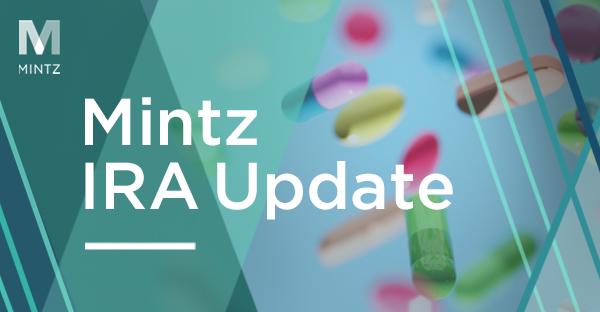Mintz IRA Update — The Growing Use of State Prescription Drug Affordability Boards
In recent years, several states have implemented independent state boards — called Prescription Drug Affordability Boards (“PDABs”) — to address high drug prices in their health care systems. Amid federal implementation of the IRA, PDABs are being utilized by state legislatures as an additional lever to curtail high drug prices.
Scope of PDAB Authority
As of July 1, 2024, eleven states have enacted PDABs: Colorado, Maine, Maryland, Massachusetts, Minnesota, New Hampshire, New Jersey, New York, Ohio, Oregon, and Washington. The authority of a PDAB varies by state; for example, PDABs in Colorado, Minnesota, Washington, and Massachusetts have the authority to identify unaffordable drugs and establish upper payment limits (“UPLs”) for those drugs to reduce drug prices for consumers in their respective states. In Massachusetts, however, the PDAB’s UPL authority applies only to Medicaid enrollees, while the PDABs in Colorado, Minnesota, and Washington have broader authority to apply their UPLs to a larger population of consumers. Other states task their PDABs with authority to drive down drug prices in their states, including, for example, the New York state PDAB, which is authorized to negotiate supplemental rebate agreements with manufacturers on behalf of the state’s Medicaid program.
Manufacturer’s Response
Manufacturers have raised concerns over the use of PDABs, including, for example, a concern that setting limits on drug prices may cause patient access issues in the long term. Manufacturers have also indicated concern that prescription drugs for rare diseases (“orphan drugs”) may suffer from less manufacturer investment if prices are capped by state boards, given the potentially limited upside in such investments. As a result, some manufacturers are pushing for state legislatures to exempt orphan drugs from the purview of state PDABs’ authority.
In some states, manufacturers have filed suit to challenge the actions of state PDABs. We will continue to monitor developments relating to state PDAB actions, and provide updates in future editions.


